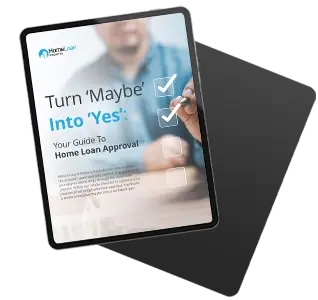If you’ve followed through the first home buyers guide, you’re in the final stretch of the home buying process, and the settlement day is finally here!
However, do you know what home loan settlement entails?
The settlement process will include key steps like:
- Getting a pre-inspection of the property you’re buying.
- Checking and signing transfer documents.
- Registering the transfer of ownership with a relevant government agency.
- Making the final payments to the seller.
What is home loan settlement in property?
It is a legal process whereby the ownership of the home passes from the seller to you.
During settlement, you have to pay the balance of the sale price with the home deposit amount and other applicable fees.
Settlement day is the last day of your settlement period and it’s when you finally take full ownership of your new home. It’s when the title is transferred from the buyer to the seller.
For instance, if you’ve already paid a $50,000 deposit for a property worth $500,000, you will have to pay the remaining $450,000 and other charges like conveyancing fees of $1500, mortgage registration fee of $150, pest and building inspections of $300, etc.
As a first home buyer, the settlement process will feel daunting and complicated since it involves a lot of documentation, complex legal procedures, and paying out large sums of money.
However, if you have a local recommended conveyancer, the process will be smooth sailing, ensuring there is no delay in the settlement process.
Simplify the mortgage maze with the 360° Home Loan Assessor
Get results on:
- Your maximum borrowing power
- The hidden costs of buying a home
- Interest-rate options based on your situation
How long does settlement take?
It usually takes between 4 to 6 weeks and is known as the settlement period.
It starts the moment you sign the Contract of Sale and ends when you finally get the keys to your home, which is when the ownership of the property changes from the seller’s name to your name.
The exact length of the settlement period will be outlined in the Contract of Sale, so you have to make sure both you and the seller have ample time to get the needful tasks done before you agree on the terms and conditions outlined in the Contract.
Home loan settlement period according to states
| Type of Property | State / Territory | Settlement Period |
|---|---|---|
| Existing home | New South Wales (NSW) | 6 weeks (longer or shorter can be negotiated) |
| Existing home | Victoria (VIC) | 6 weeks (longer or shorter can be negotiated) |
| Existing home | Queensland (QLD) | 4 to 6 weeks or 30 to 90 days |
| Existing home | South Australia (SA) | 4 to 6 weeks |
| Existing home | Western Australia (WA) | Negotiable by buyer and seller (6 weeks is recommended) |
| Existing home | Northern Territory (NT) | 30 to 90 days |
| Existing home | Tasmania (TAS) | Negotiable by buyer and seller |
| Existing home | Australian Capital Territory (ACT) | 4 weeks |
| Vacant land | Where the property is not built yet | 14 days after Certificate of Title is registered, or (if already registered) 56 days after contract is signed. |
| Off-the-plan | Where the property is not built yet | 12 to 18 months or longer |
What do I pay on settlement day?
You will have to pay the deposit for your home and other fees like stamp duty and Lenders Mortgage Insurance (if applicable).
However, as a first home buyer, there is stamp duty exemption or concessions available for you in some states and territories.
Fast Track to Approval: Your Home Loan Checklist
A well-curated checklist to improve your chances of a home loan approval.

What Is PEXA Settlement?
PEXA stands for Property Exchange Australia, and is the only electronic conveyancing or e-Conveyancing service that enables lawyers, conveyancers and professionals lodge transfer documents electronically.
Through PEXA, electronic settlement is possible as your conveyancer can lodge an electronic lodgement with the Land Registry.
Currently, PEXA transactions are accepted in 5 Australian states, which are; New South Wales, Queensland, Victoria, South Australia and Western Australia.
E-conveyancing has significantly reduced the manual process and traditional paperwork as documents are created digitally and communication between parties are done through the PEXA workspace.
Furthermore, property transactions including paying settlement balance like taxes, duties, etc can be done on PEXA.
However, not all lenders use PEXA and not all loan types are supported by it, so manual settlement is still required, which adds a few extra days.
When Is Settlement Date?
This is outlined in the Contract of Sale.
The settlement date is the time when the buyer is recognized as the new owner of the home.
It begins when you and the seller are in agreement for the sale of a property and ends on settlement day.
This is when both you and the seller dot the i’s and cross the t’s.
What happens on settlement day?
Fortunately, you don’t have to be present on that day as your conveyancer will act on your behalf, and do the following:
- Conveyancers from the buyer and seller’s side meet with each other.
- If you have a home loan, a representative from the lender will be present at settlement day to hand over the funds for purchase.
- Once funding is provided, your mortgage is registered against the property. Your Certificate of Title will be held as part of security for the loan. If the seller had a mortgage on the property, the conveyancer will make sure it is removed before the title is transferred to make sure there is no caveat.
- If you have a mortgage, ensure that you have adequately insured the property.
- Your conveyancer also makes sure all the clauses in the Contract for sale are fulfilled.
What Happens On Settlement Day?
Fortunately, you don’t have to be present on that day as your conveyancer will act on your behalf, and do the following:
- Conveyancers from the buyer and seller’s side meet with each other.
- If you have a home loan, a representative from the lender will be present at settlement day to hand over the funds for purchase.
- Once funding is provided, your mortgage is registered against the property. Your Certificate of Title will be held as part of security for the loan. If the seller had a mortgage on the property, the conveyancer will make sure it is removed before the title is transferred to make sure there is no caveat.
- If you have a mortgage, ensure that you have adequately insured the property.
- Your conveyancer also makes sure all the clauses in the Contract for sale are fulfilled.
How Can I Prepare For Settlement Day?
- Stay in contact with your conveyancer or solicitor who will be acting on your behalf throughout the entire settlement process.
- Make preparations for moving into your new home.
- Make sure the Contract of Sale is signed and dated. Check that the settlement date is agreed upon with both you and the seller.
- Since money changes hands during the settlement process, ensure that you’ve organized all the funds needed to complete the sale. This includes Lenders Mortgage Insurance (if applicable), and other fees.
- You should also organize a building and contents insurance which will be effective from the day of purchase.
- There should be ample time for you to conduct a final inspection of the property.
- Your conveyancer should do a title search, so all relevant parties know that the title is clear to be sold to you. There should not be any caveats in the property title.
What Happens After Settlement?
After receving the keys to your home, you finally move in!
If you have applied for a mortgage, then you will start paying for it after a month.
You will start repaying your lender for the home loan they’ve provided to buy your first home.
As a home loan is one of the biggest debts you might be paying, it’s good practice to manage your home loan, even after settlement.
Can I Move In On Settlement Day?
It may seem like the settlement date is the best time and date to move into your new home, but this is not recommended.
There could be unforeseen problems like missing documents or insufficient funds which can lead to a delayed settlement.
It’s best to keep at least a week as a buffer to make up for any shortcomings during the settlement process.
What Is Delayed Settlement
Get expert help when buying your first home
It’s understandable that as a first home buyer, you’ll get anxious and excited when settlement day draws near.
However, you do not need to worry, as you’ll have a team of experts to help you along the way.
Our award-winning mortgage brokers are here to help you in every step of the way during your first home buying process. Call us on 1300 889 743 or get a free assessment online.
[sg_popup id=57745]
Frequently Asked Questions
Is Extending The Settlement Date On A Signed Contract Possible?
Yes, you can extend your settlement date after you’ve signed the Contract, but you’ll be at the mercy of the seller.
The seller is under no obligation to extend the date for you, without any penalty.
The same goes from your side as well. If the seller wants to extend the settlement date, you can refuse it as well.
However, if there’s an amicable agreement between you and the seller, then the settlement date can be extended with no penalty charged.
Can I Cancel The Home Loan Agreement Prior To Settlement?
What Is A Settlement Statement?
Settlement Checklist
We’ve made a handy settlement checklist for first home buyers with a list of questions you’ll need to answer, so there are no hiccups during the settlement process.
- Have you confirmed the time and date for settlement?
- Do you have funds available for settlement? (Make sure your lender has provided you with the cheque from the proceeds of the loan to settlement)
- Is the information on the cheque (name, amount, date, etc.) correct? A spelling error could delay your settlement, and you incur penalty interest.
- Has your conveyancer accounted for the registration fee? If the fee is not paid, then the title won’t be registered in your name.
- Is the information on the settlement statement correct? If not, go through the information with your conveyancer.
- Have you conducted a final inspection of the property to make sure everything is in order?
- Have you gone through adjustments for local council rates, water and sewer charges since you’ll have to pay for them once the property is in your name?
- Is your property adequately insured? Is there building and contents insurance for your home?
- Have you changed the locks to your home after you’ve received the keys?
Get Expert Help When Buying Your First Home
It’s understandable that as a first home buyer, you’ll get anxious and excited when settlement day draws near.
However, you do not need to worry, as you’ll have a team of experts to help you along the way.
Our award-winning mortgage brokers are here to help you in every step of the way during your first home buying process. Call us on 1300 889 743 or get a free assessment online.
[sg_popup id=57745]
